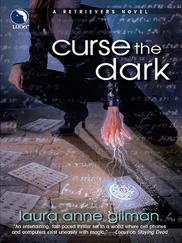After digging through boxes, sacks, and drawers, Todos los Santos presents me with the following poem, typewritten and signed by the telegraph operator Renato Leduc:
Jovian pain of losing
adored things. Pain that oft
costs your life,
and oft costs naught .
I once told you: I love you,
as I had never said before
nor ever will again so true.
I said it to you in desperation
because I knew that very soon
another would say it too .
I said it in desperation,
but I have nothing to regret .
I loved you so, I loved you
because in your eyes so fair
was a piece of infinity;
because of your chestnut hair,
because of your mouth
barbarously naked
I loved you, I loved you so.. .
But so many people loved you
at once,
that I told myself: it is implausible
to plead
— if so many people love her—
things she does not need .
I thought of killing myself
then,
but I didn’t, because
I asked myself, why?
Lost in pain and grief
I let my beard grow
because that limpid love so brief
from it derived such merriment,
since virgins have always found
— or so they say — in beards much amusement .
Jovian pain of losing.. .
Apart from being a poet, there is little I am able to find out in Tora about the author, who defined himself as a bureaucrat of the lowest level. I know that when he arrived here he lodged at the Casa de Huéspedes, belonging to Conchita la Tapatía, a fellow Mexican, and that during the many nights in which they shared reminiscences of their motherland over glasses of Vat 69, he told her that he had trained for his profession at the Escuela Nacional de Telégrafos in Mexico City, which occupied an old building on Calle Donceles, next to the women’s insane asylum, and that he had started working before he turned thirteen — before he even had hair on his balls, he said — to help support his widowed mother. That before he arrived in Tora he had passed through Paris, where the puticas in the Latin Quarter taught him how to speak French; that he was fiercely anticlerical and aluciferado, a term he himself used, meaning “possessed by the devil”; “a man who had lived a great deal,” as Todos los Santos said; a man who was stuck on Sayonara from the first time he saw her through the window of the telegraph office in Tora, who became her most assiduous and starry-eyed client, and who weekly left in her hands nearly the entirety of his scant weekly salary.
“You can’t offer your heart to a woman like that,” admonished his Colombian best friend, a giant of a man named Valentín.
“For a woman like that, I have nothing but heart,” Renato replied.
“Love me,” Leduc begged Sayonara.
“I can’t love you. I look at you and I don’t see you.”
“You have an empty pot where other women hold their feelings,” the telegraph poet told her, and she realized that he was right, in part.
Then, enamored and in pain, he quit his job, packed a trunk with all of his books and his two changes of clothes, wrote the final poem, titled it “Romance of the Lost,” sent it to the addressee in an envelope, and returned to his Mexico, where he was heard to say that he had left Colombia to flee the indifference of a distant lover bent on remaining a puta .
The day after her return to Tora, Sayonara shook off her exhaustion by sleeping until the middle of the morning, and when she arose she found her madrina, Machuca, and Olga whispering suspiciously in the kitchen.
“Are you going to tell me what you are up to?” she asked them. “Since last night you’ve been plotting something behind my back and it’s time for you to tell me what it is.”
“We’re going to tell you, we already decided that. It’s bad news. About your sister Ana.”
“Did she die?”
“No, but that might have been preferable.” They kept beating around the bush, without daring to be specific.
From the moment of her arrival, Sayonara had been asking about her sister and they had answered her evasively. We don’t know, it seems that she lives on a finca near the village of Los Mangos, she left a telephone number but no one ever answers there, and when they do they say she moved somewhere else. Then, because of the deception and the delaying, Sayonara pitched a fit, one of those demoniac rages with eight legs and two heads that spits poison from its mouths and fire from its tail, one of those boundless bursts of anger that hadn’t possessed her since adolescence and that still gave them something to talk about in Tora.
“Either you tell me now, or I’ll tear apart this house and everything in it.”
They told her. Ana was the mistress of General Demetrio del Valle, commander in chief of Tora’s campaign of moralization and shanty eradication, who, because he was married civilly and in the eyes of the church to a rich lady from Anolaima and didn’t want to be found out, kept Ana closed up in a house next to the garrison and had spread the word that she was a cousin of his from the country whose education he had charitably offered to sponsor.
“I’m going to get her out of there even if it costs us both our lives,” announced Sayonara, and without further delay she started off.
“Wait,” suggested Todos los Santos in a softer voice, so as not to unleash the storm again. “Let her make her own life just as you have made yours. Besides, the way things are right now, it’s better to be the mistress of a gorilla than the wife of some man who’s dying of hunger.”
But Sayonara wasn’t there to hear her, and a few hours later she was clambering across the garrison’s tiled roofs, then broke a window and climbed through it.
“Del Valle pays for my private English and dressmaking lessons,” Ana told her. “He has given me a television, a record player, and a collection of LPs. He brings me marzipan fruits made by nuns and bottles of sweet wine from Oporto, and as if that weren’t enough, in bed he prefers sleeping over messing around. Does it look like I’m suffering, sister?”
“And the wrongs that the military has done to our family? Have you forgotten the atrocious way they caused the deaths of our mother and brother? And the wrongs they have done to our people, back in Tora? Have you forgotten?”
“No, hermana, I haven’t forgotten, and sometimes the anger makes my blood boil and I see red, and at those times I hate del Valle and want to strangle him with my bare hands. But then he brings marzipan, turns on the television, falls asleep like a little orphan, and I forgive him. If you saw him without his hat, with his four hairs plastered against his skull, he wouldn’t seem so ferocious to you. But I promise you one thing: If some day the anger overcomes the forgiveness, I’ll put strychnine in his café con leche . Or if some day I get tired of marzipan and studying English, I’ll take off through that window, hermana , the same one you just came in by, and I’ll go straight to Todos los Santos’s house.”
Several times I have made notes in my notebook that I should inquire about an enigma, which is: On what do Olga and Todos los Santos actually live? Finally I get up the nerve to ask and Olguita tells me that when the savings that Sayonara had left for her sisters ran out, Sacramento took charge of the situation. Persevering in the lumber business, he managed to finance the girls’ education as well as special treatment for little Chuza, who he still takes to Bucaramanga once a month to see a speech therapist, because although she’s now married, she still hasn’t spoken a word.
Читать дальше












